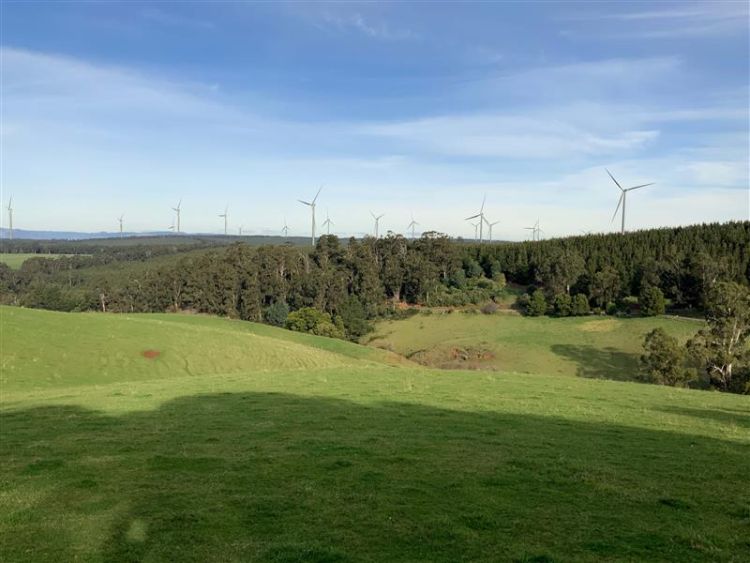This hands-on workshop, linked to the Victorian curriculum 2.0, uses STEAM skills and problem solving to get students excited about renewable energy and the types of jobs and skills required for the energy transition.
The workshop can be tailored to both primary and secondary students and delivered as an incursion at your school or at the SEC Morwell hub.
Workshop scenario
The renewable energy transition is a major change taking place. To make this relatable to students, we have built a workshop around electric vehicles (EVs). Using coding and Ozobots, students will apply problem-solving skills to their journey and creating renewable energy towns.
Primary and secondary students will:
- learn about renewable energy and the energy transition
- code tiny robots acting as EVs (Ozobots) to plan journeys
- learn about different jobs required for the energy transition
- decide where to charge EVs. Secondary students will apply maths to this activity.
- use problem-solving skills to design renewable energy landscapes.
Workshop themes

Renewable Energy

STEAM

Sustainability

Coding

Problem solving
Workshop format
The workshop is delivered as an incursion at your school or at the SEC Morwell hub, and can be scheduled to fit into your timetabling needs.
We have two options:
- 90-minute session with town planning activity
- 45-minute session with no town planning activity.
Introduction
- Workshop overview and the role of the SEC in the energy transition.
- Introduce students to Ozobots and how coding can be used to program how they operate. Ozobots will simulate EVs.
Activity
- Working in pairs, students will use their problem-solving skills to code the Ozobots to make different journeys on a range of maps.
Discuss the energy transition
- Introduce the role and types of renewable energy in supporting the energy transition and meeting our emission targets.
- Discuss the types and number of jobs required for the transition, and ask students to identify jobs they are interested in.
Wrap-up
- Discuss what students learnt, what worked well and areas for improvement.
Options for extension activities
- Students plan where to charge their EVs. Secondary students will apply maths to calculate the distance of their journey.
- Students will make planning decisions on where to place different renewable energy sources on the map.
- Discuss students’ aptitudes and interests and how they link to different careers in renewable energy.
Victorian Curriculum 2.0 Years 5-6
Design and Technologies – Technologies and Society
How people in design and technologies occupations consider competing ethical factors including sustainability in the design of products, services and environments. VC2TDE6S01
Geographical knowledge and understanding – Management of places
How places and environments are changed and managed by people. VC2HG6K01
Earth and space sciences
Sudden geological changes or extreme weather conditions can affect Earth’s surface and atmosphere; the impacts of natural hazards, including earthquakes, volcanic eruptions, wildfires and floods, can be reduced by human actions and technological innovations. VC2S6U06
Futures Thinking
Sustainable futures thinking requires individuals to think creatively, seek information, identify a variety of possibilities, reflect and evaluate actions, and collaborate with and influence others as they work towards desired futures. VC2CCPSFT3
Victorian Curriculum 2.0 Years 7-8
Technologies and society
The impacts of innovation and the development of technologies on designed solutions for ethical considerations including sustainable living VC2TDE8S02
Creating digital solutions
Strategies and responses to manage and improve the liveability and environmental sustainability of Australia’s cities, and to adapt to climate change VC2HG8K21
Earth and space sciences
The sustainable use of Earth’s resources is influenced by whether the resources are renewable or non-renewable; the processes involved in resource extraction and energy production come with both benefits and risks to sustainability VC2S8U09
Physical sciences
Energy exists in different forms, including thermal, chemical, gravitational and elastic, and may be classified as kinetic or potential; energy transfers (conduction, convection and radiation) and transformations occur in simple systems and can be analysed in terms of energy efficiency VC2S8U15
Download the Road to Renewables learning guides
-
SEC school program materials learning guide - Primary PDF File (159.7 KB)
-
SEC school program materials learning guide - Secondary PDF File (160.6 KB)
Frequently asked questions
All workshops are free of charge.
Workshops can be delivered to two classes at a time and multiple workshops can be scheduled throughout the day. If you would like the workshop to be delivered to a whole year level, workshops can be delivered over multiple days.
The workshops are delivered by experienced educators. The school is responsible for the duty of care and behaviour management of the students and the teacher must stay in the classroom for the duration of the session.
Please discuss appropriate behaviour with your students to ensure that everyone can enjoy their experience.
The workshop is best suited to a science or technology class.
Students will be working in groups, so tables set up for group work is preferable. Tables are not essential, and students can work in small groups on the floor and in break-out spaces.
AV equipment for a presentation is required, all other materials are provided.
SEC is committed to the safety and wellbeing of all children and young people. All staff have been trained in appropriate ways to work with children and all have a valid Working With Children Check.
Workshop risk assessments are available on request.



